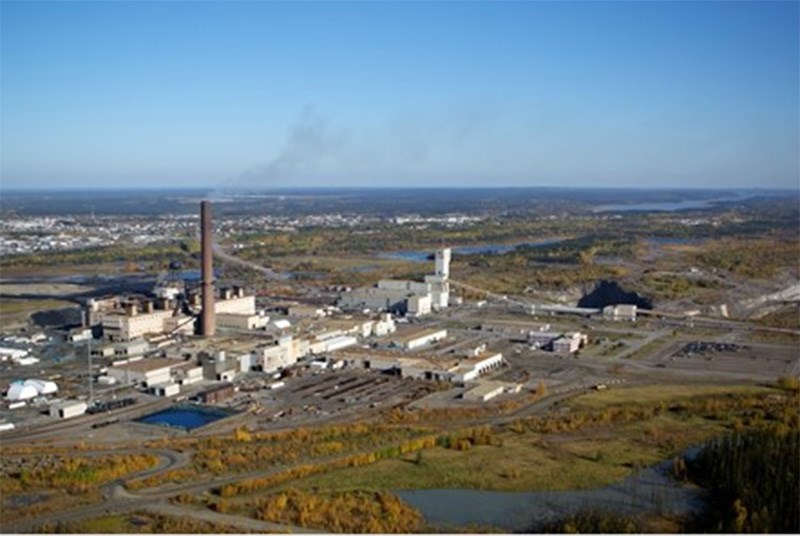Manitoba’s NDP and Progressive Conservative parties are engaged in a war of words over which party is more supportive of mining in the run-up to the Sept. 10 provincial election.
NDP leader Wab Kinew said in a press release July 18 that Manitoba has lost two-thirds of its active mines since Brian Pallister became premier in 2016 and that Statistics Canada says there are 500 fewer natural resources workers in the province than there were in 2017.
“The Pallister government has stood idly by while northern communities struggle to stay afloat in the face of multiple mining closures,” said Kinew. “At a time when workers and their families need protection, how does the Pallister government respond? By calling it ‘business as usual.’”
Documents obtained by the NDP through freedom of information requests show that there were nine “active” mines in Manitoba on April 9, 2016, including 777 Mine in Flin Flon, Birchtree Mine and T-1,T-3 and 1-D mines in Thompson (the latter three counting as one mine), Lalor Mine and Reed Mine in Snow Lake, and Tanco Mine in Lac du Bonnet. Three others, including Bucko Lake Nickel Mine in Wabowden and Hinge-007 Mine and Rice Lake Gold Mine in Bissett, were on care and maintenance status at that time.
Currently, there are eight “active” mines in the province, four of which, including the two gold mines in Bisseet and Bucko Lake in Wabowden as well as Birchtree Mine in Thompson, are currently on care and maintenance. Hudbay’s Reed Mine shut down last July after about five years of operation and four years of actually hauling ore. 777 Mine, Lalor Mine, Tanco Mine and Vale’s T-1, T-3 and 1-D mines remain active though the company shut down its smelter and refinery in Thompson permanently about a year ago.
Thompson PC candidate Kelly Bindle, who has represented the constituency in the legislature since April 2016, said in a July 18 press release that Kinew’s purported support for mining and natural resources is merely a political tool he uses to court votes in Manitoba’s North.
“Wab Kinew has been very clear that he is opposed to developing our natural resources and has called for the shutdown of mining projects around the world,” said Bindle.
The PC party points out that Kinew has signed the LEAP Manifesto, which says, “There is no longer an excuse for building new infrastructure projects that lock us into increased extraction decades into the future. The new iron law of energy development must be: if you wouldn’t want it in your backyard, then it doesn’t belong in anyone’s backyard. That applies equally to oil and gas pipelines; fracking in New Brunswick, Quebec and British Columbia; increased tanker traffic off our coasts; and to Canadian-owned mining projects the world over.” The PCs also point out that the manifesto calls for an end to all trade deals and that Manitoba NDP passed a resolution called “Keep it in the Ground,” which was approved by party members at a convention in 2017 and reads, “The Manitoba NDP will oppose the expansion and development of any new pipelines to transport tar sands oil through Manitoba and commit itself to the promotion of a low-carbon, carbon-free energy sources such as geothermal, wind, solar and hydro that creates sustainable, high‑quality jobs for Manitobans.”
“Wab Kinew and the NDP pretend they support the northern economy, but the facts are clear,” Bindle said. “They are a direct risk to our way of life. They want to shut down our mining sector and make it harder for us to sell products on the global market. And, at the same time, they want to make life less affordable for northerners by imposing a devastatingly high carbon tax on Northerners.”
Kinew points out that the Manitoba government has rebuffed attempts by the City of Thompson to access funding from the Mining Community Reserve Fund by saying the amount of money in the fund does not meet the $10 million threshold required, the PCs say, for it to be used. The NDP obtained documents showing there is currently more than $11 million in the fund.
Warren Luky, president of United Steelworkers Local 6166, the union that represents hourly workers at Vale in Thompson, said Bindle was silent on the issue of mining until a recent private members bill expressing support for the industry that was never voted upon and that he wasn’t present during Vale’s transition to a mining and milling only operation, which reduced the Thompson workforce to about 600 hourly workers plus Vale staff.
“If he supported mining it was not through speaking up for mine reserve funds for our community,” Luky said.
The province recently issued a request for proposals (RFP) to develop a mineral readiness strategy for Northern Manitoba “that will include opportunities for strategic alignment of geological services to identify the long-term potential, strengthen administration and improve the benefits to Manitoba by positioning the mineral sector as a major contributing pillar of the economy.” Evaluation of the proposals received is set to be complete by July 19 and the contract awarded by Aug. 2, with the successful company expected to begin providing services Aug. 9.
“This RFP is too little, too late for the people of Thompson, Flin Flon and The Pas who have watched good jobs disappear from their communities,” said Flin Flon NDP MLA Tom Lindsey. “Families need more than a plan to have a plan. They need support now.”




